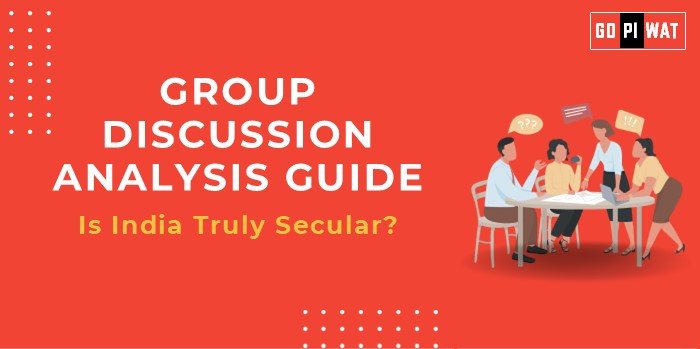📋 Is India Truly Secular?
🌐 Introduction to “Is India Truly Secular?”
Opening Context: The secularism of India is frequently debated given its vast religious diversity and the complex interplay of politics, law, and culture. As a concept, secularism in India is defined as the state’s commitment to maintain equal respect for all religions. This topic holds importance for B-school candidates as it delves into understanding secularism’s role in governance and societal harmony in a diverse democracy like India.
Topic Background: Secularism in India is enshrined in its Constitution, which guarantees freedom of religion under Articles 25-28. The term “secular” was officially added to the Preamble in 1976 through the 42nd Amendment. However, the application of secularism is often contested, raising questions about how true the secular fabric of India is in practice.
📊 Quick Facts and Key Statistics
- ⚖️ Constitutional Amendment (1976): The 42nd Amendment officially included “secular” in the Indian Constitution.
- 🌍 Religious Diversity: India is home to approximately 80% Hindus, 14% Muslims, and 6% other religions, highlighting its pluralism.
- 🏛️ Judicial Protection: Supreme Court cases, such as S.R. Bommai vs. Union of India (1994), uphold secularism as a core feature of the Constitution.
- 👥 Political Representation: Various religious groups are represented in legislative assemblies across India, reflecting its democratic commitment to secular governance.
👥 Stakeholders and Their Roles
- 🏛️ Government and Judiciary: Enact laws and make judicial interpretations to uphold secular principles.
- 🙏 Religious Leaders and Institutions: Play a role in promoting tolerance or, at times, in highlighting tensions around secularism.
- 📢 Citizens and Civil Society Organizations: Actively participate in secular movements and influence policy.
- 🌐 International Organizations: Monitor religious freedom in India, influencing global perceptions and trade relations.
🏆 Achievements and Challenges
✨ Achievements:
- ✅ Constitutional Protection: Secularism is a basic feature of the Indian Constitution and cannot be amended away.
- ✅ Pluralistic Society: India successfully manages one of the world’s most religiously diverse societies.
- ✅ Judicial Support: Courts frequently support secular principles in judgments, reinforcing India’s secular fabric.
⚠️ Challenges:
- 🚫 Politicization of Religion: Political parties often use religion to gain votes, challenging secular ideals.
- ⚠️ Religious Conflicts: Communal tensions occasionally escalate, reflecting the struggle to maintain secularism.
- 📚 Education System: Lack of secular education in certain regions can perpetuate divisiveness.
🌍 Global Comparisons:
- 📍 France: Practices strict secularism, or “laïcité,” which contrasts India’s model of respecting all religions.
- 📍 United States: Allows religious symbols in public life while maintaining a legal separation between church and state.
💡 Structured Arguments for Discussion
- Supporting Stance: “India’s secularism is unique in its respect for all religions, which is deeply rooted in its Constitution and diverse societal structure.”
- Opposing Stance: “India struggles with true secularism due to politicization of religion and frequent communal tensions.”
- Balanced Perspective: “While India enshrines secular values constitutionally, the real-world application often challenges these principles due to social and political complexities.”
📋 Effective Discussion Approaches
- 📊 Opening Approaches:
- Historical Context: “India’s secular identity was constitutionally fortified in 1976, but secularism has always been a part of India’s ethos.”
- Comparative Approach: “While India’s secularism allows religious freedom, countries like France impose stricter secular laws.”
- 🤝 Counter-Argument Handling:
- Use judicial cases like S.R. Bommai to reinforce secular principles when countered on India’s secular failures.
🔍 Strategic Analysis of Strengths and Weaknesses
- Strengths: Constitutional protection, judicial support, pluralistic culture.
- Weaknesses: Politicization, communal tensions, inconsistent enforcement.
- Opportunities: Strengthening secular education, promoting interfaith dialogues.
- Threats: Rising religious nationalism, global scrutiny on religious freedoms.
📚 Connecting with B-School Applications
Real-World Applications: Projects exploring governance, public policy, and the impact of religion on economic development.
Sample Interview Questions:
- ❓ “How can India better balance religious freedom and secularism?”
- ❓ “What are the implications of secularism on India’s economic policies?”
Insights for B-School Students: Understanding secularism provides insights into governance, human rights, and international relations—key areas for leadership and strategy.


